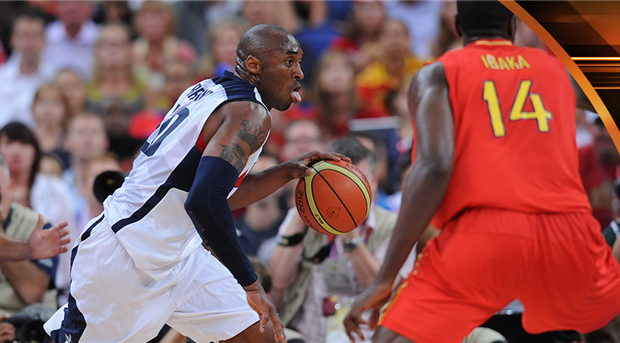Last October, Netflix rolled out “The Redeem Team,” a two-hour documentary recounting the U.S. basketball’s return to international dominance. Previously undefeated in the Olympics since the formation of the legendary 1992 Dream Team, the U.S. shockingly lost to Argentina in 2004. Entering the 2008 Beijing Olympics with a score to settle, the documentary spotlights all the challenges and triumphs of the 2008 gold medal run.
The 2004 Olympics in Athens ended the U.S. basketball team’s historic dominance, with the team losing their first game to Puerto Rico all the way to being eliminated in the semi-finals. After their disastrous run, they lost the 2006 FIBA Qualifiers to Greece, signaling international competition had firmly caught up with the U.S.
A cornerstone of the documentary, Kobe Bryant’s leadership was indispensable for the team going into the 2008 Olympics. Bryant had never participated in the Olympics before 2008 but gladly accepted the chance to fill that year’s roster.
Beyond his play on the court, the documentary delves into how Bryant’s immense dedication to training established the hard-working approach of the team. Notably, the film details instances where Bryant stayed in the hotel to train while the team partied late in Las Vegas, where their training camp was being held.
“Next thing you know, it goes from just Kobe going at 5:30 in the morning, to LeBron and [Dwyane Wade], and by the end of the week the whole team was getting up every morning, and we were on Kobe’s schedule,” said U.S. basketball teammate Carlos Boozer.
Along with dedicating more time to practice, the team focused on its commitment to the U.S. Coach Krzyzewski brought in special guests to stir up patriotism within the team, most notably army veterans and Doug Collins, a member of the 1972 U.S. Olympic team.
Along with the disgrace of being the first U.S. team failing to earn a gold medal, the loss came at the height of Cold War tensions between the U.S. and U.S.S.R. Collins described their loss to the Soviets in the deciding game as something he “will live with forever.” The 2008 team dedicated their victory to their 1972 predecessors, carrying not just the 2004 loss on their shoulders but also a larger part of the history of U.S. basketball.
Throughout their time in Beijing, the team not only represented their predecessors but also the larger U.S. Especially after the 9/11 attacks heightened tensions in Athens and prevented the 2004 U.S. athletes from lodging in Olympic Village, the team wanted to reestablish themselves within the public sphere and among their international peers.
“We [wanted] to get out. That was just…another check mark of ‘Hey, we need to change the culture of…the Olympics and how we [Americans] are perceived.’” U.S.A. basketball player Dwyane Wade said. “The whole team would go together, or individuals would go together, just to be around the other athletes.”
One of the greatest narratives in U.S. basketball, the documentary highlights all the burdens the 2008 team overcame to reclaim their stature as the best team in the world. This inspiring run restored U.S. basketball stature in the Olympics, with all subsequent teams taking back home gold medals.





























































